Coastal communities and coastlines around the world are increasingly facing challenges including extreme weather, sea level rise, and population growth. While people may not see eye-to-eye when it comes to the drivers of these changes, most will agree that coastlines are transforming nonetheless and threatening humanity’s current way of life at the coast.
What can communities do to combat these changes? How might they adapt to become more resilient? These were some of the general questions tackled by students participating in the fourth year of the Resilience and Adaptation to Coastal Change Across Communities (C2C) Research Experience for Undergraduates (REU) this summer at the Coastal Studies Institute.
The 2024 C2C REU program, funded by the National Science Foundation (NSF) and hosted jointly by East Carolina University®, Clemson University, and the University of Puerto Rico- Arecibo, received the most interest to date. 199 individuals applied for only nine available spots, and the nine accepted students came from all over the country to the Outer Banks for a summer season of intensive learning and research. Through the program, they studied both natural and human-made environments from the perspectives of the natural and social sciences.
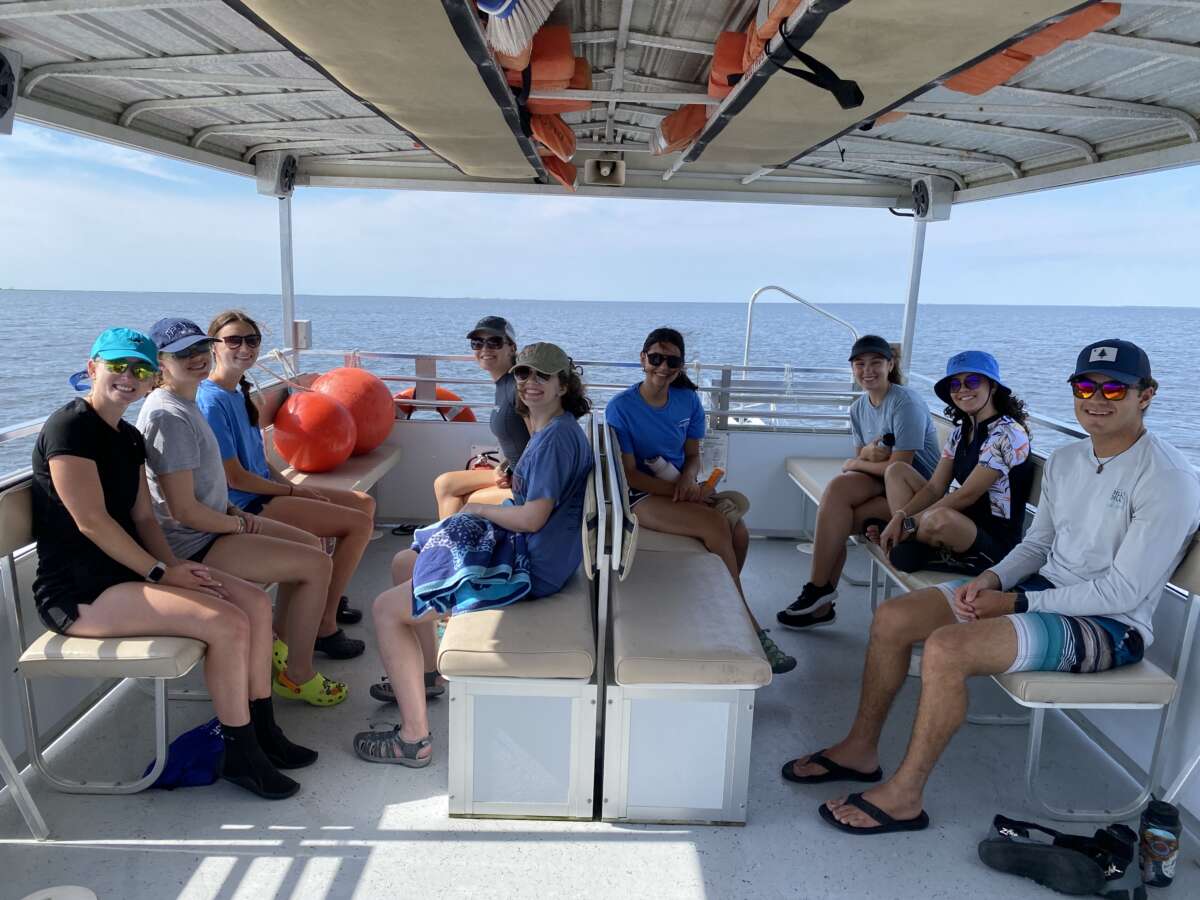
The students set sail on the R/V Discovery for a field trip on the Croatan Sound.
While the students had the opportunity to experience life on the Outer Banks through guided trips to Nags Head Woods, Jennette’s Pier, the NC Coastal Federation, and Oregon Inlet, the C2C program’s main goal is to give undergraduate students opportunities for independent research. Each of the students was paired with a faculty mentor, or mentors, from one of the three host schools. Some had mentors with whom they could meet regularly in person, but others coordinated with their advisors virtually.
The students had about 10 weeks to work with mentors to develop and implement a short coastal-related research project. Some continued projects started in previous years. This year the program also placed an emphasis on science communication and education. As an additional assignment, the students were divided into small teams and asked to plan an educational module that included a lesson on a related topic in coastal studies and a hands-on activity for K-12 age students with the hope that they could be used in CSI summer camp programming in the future. Finally, in addition to completing these program requirements, most of the students presented their research at the Summer Undergraduate Research Symposium (SURS) on ECU’s main campus in Greenville two weeks before their own symposium at CSI.
“I was blown away by what these students were able to accomplish in a summer. This group was full of self-starters and needed little to no guidance from me to begin their independent research. By week two, one student was already out in the field collecting shrimp, one had fully transitioned from their typical studies as a biology major into a minor economics expert for their econ-focused project, and another was analyzing data using a new-to-them program,” says C2C REU program coordinator Julie Kirn.
A few projects and experiences, in particular, showcase the diverse, yet interdisciplinary and collaborative nature of the C2C REU program.
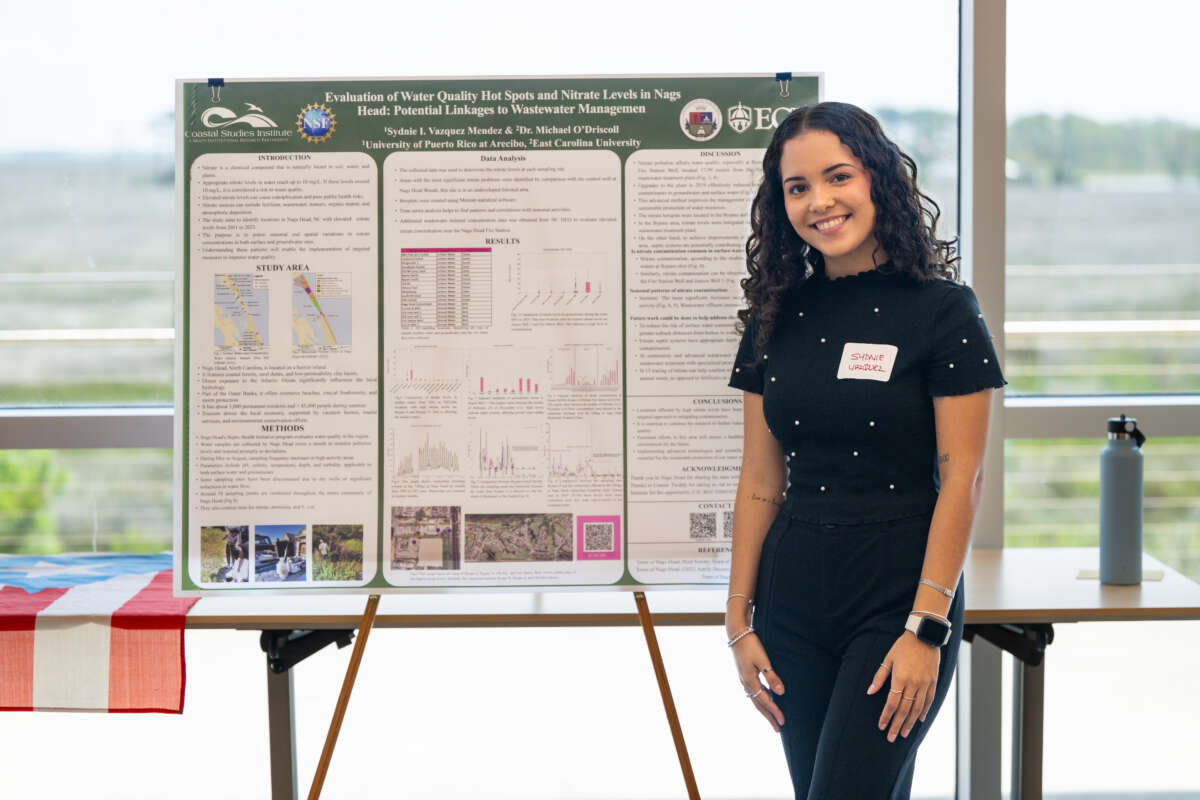
Sydnie Vasquez (above or right), a student from the University of Puerto Rico- Arecibo, worked with Dr. Mike O’Driscoll (ECU) to assess seasonal and spatial variations in nitrate levels in areas of Nags Head, NC. She found the project equally fascinating and challenging as English is her second language and communicating scientific ideas in a non-native language was sometimes difficult.
During her time on the Outer Banks, Vasquez reviewed data collected in previous years to identify areas with elevated levels of nitrates found in surface and groundwater which could have implications for overall water quality in Nags Head. She was also able to assist with ongoing sample collections.
Now that areas in Nags Head with elevated levels of nitrates have been identified, there can be a more targeted approach by the Town of Nags Head to mitigate decreased water quality. “Persistent efforts in this area will ensure a healthier and more sustainable aquatic environment for the future,” she writes.
Another North Carolina-focused study was conducted by ECU student Paige Day (below or left) under the mentorship of ECU faculty members Dr. Rosana Nieto Ferreira and Dr. Thomas Rickenback. Day used data from a week-long case study conducted in July 2016 to better understand diurnal precipitation patterns in coastal North Carolina– an area that typically receives rain offshore in the mornings and then rain over land and near shore in the afternoons during the summer season. The results of her project will help to improve the forecasting of short-term and seasonal summertime rain for the NC coastal plain and offshore region.
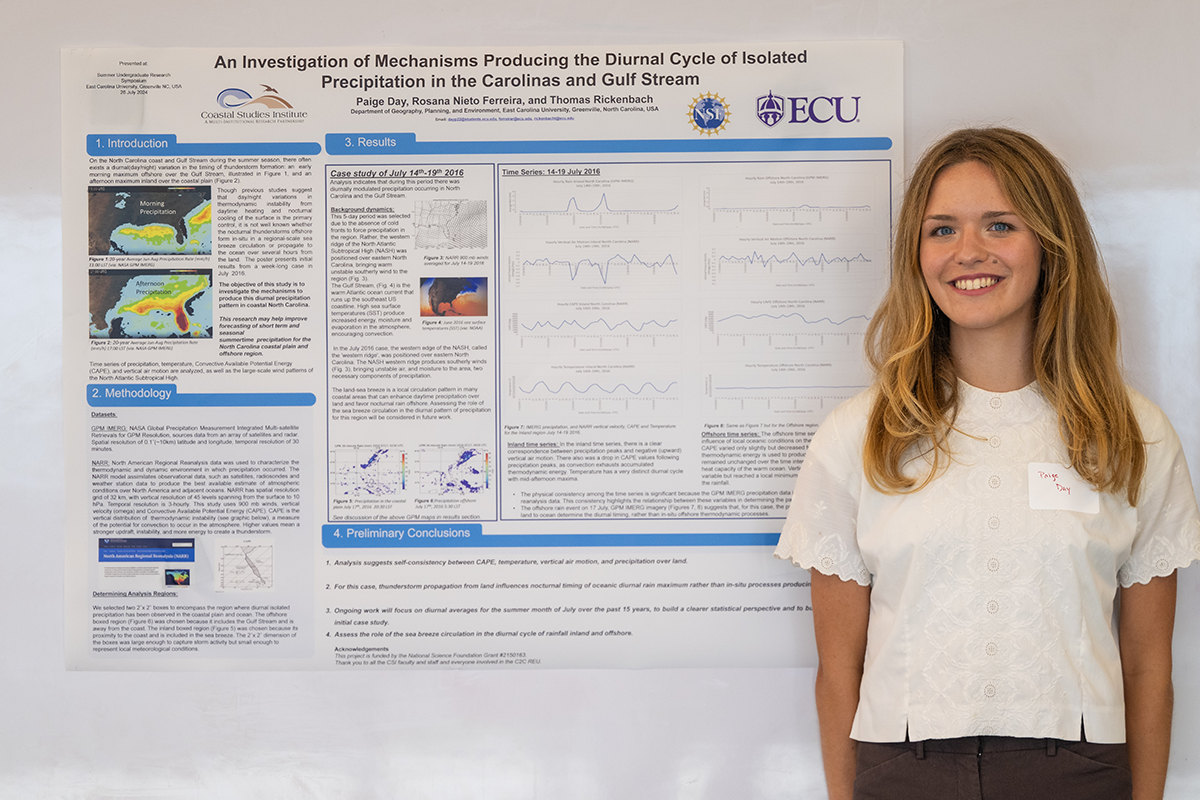
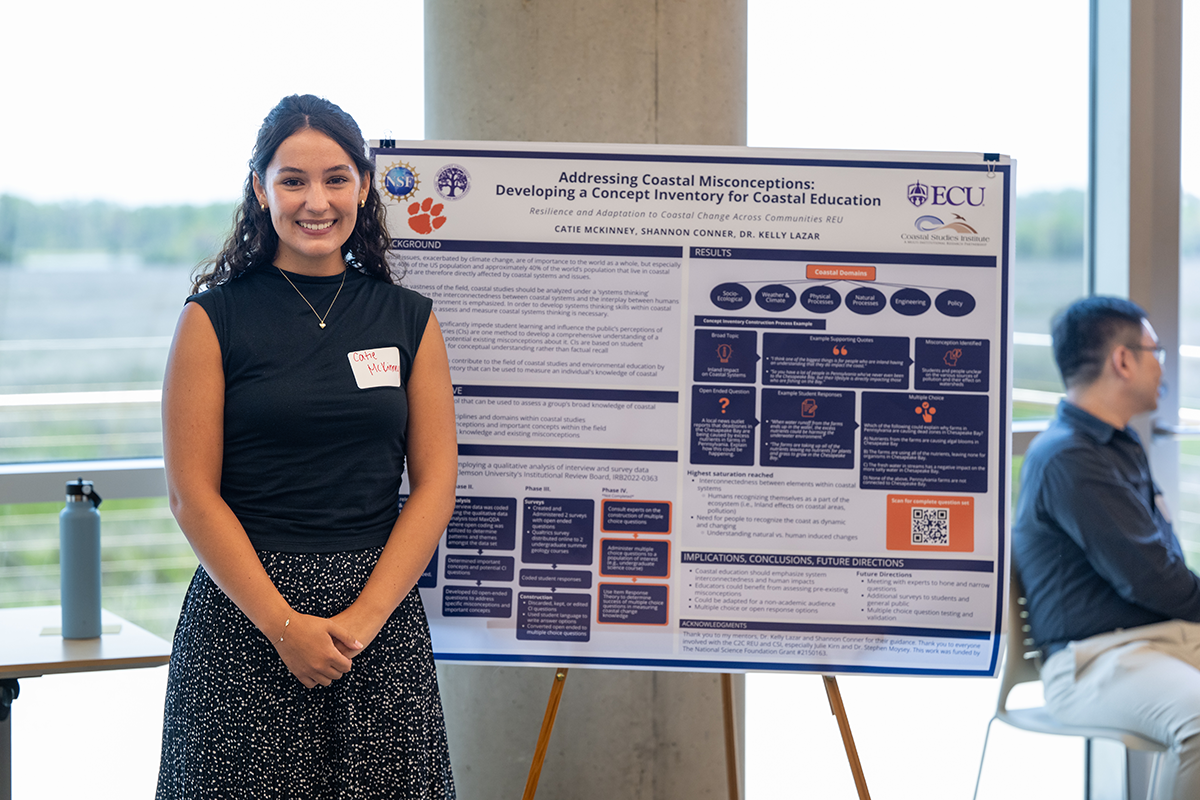
Finally, while Vasquez’s and Day’s research studies were within the hard science fields, Catie McKinney (pictured below), a student from High Point University, tackled a social science issue with the help of her advisors Dr. Kelly Lazar (Clemson University) and Shannon Connor, a graduate student at Clemson. Her work aimed to define what the field of Coastal Studies includes and then better represent the entire domain. Through her study, McKinney found that concepts of weather & climate, physical processes, natural processes, engineering, policy, and social-ecological dynamics are all included in the coastal studies realm and that coastal education should emphasize system interconnectedness and human impacts.
All the students put a tremendous amount of work into their studies, and this was evident at their own research symposium at CSI in August. Not only did each student produce a poster to share their findings with program mentors and CSI faculty and staff, but they also prepared reflective videos and spoke on a panel to answer questions about their summer experiences.
This highlighted some of the challenges young researchers face, including the obstacles involved with remote work, research, and collaboration. Overall, though, the students were delighted by the opportunities they received this summer through the C2C REU program– thoughts echoed by two former C2C REU participants who loved their experiences at CSI so much that they returned for research technician positions in 2024.
Though the fourth year of the C2C REU program has ended, there are still many coastal resiliency issues to address. The program has requested additional funding so that the C2C REU may continue for three more years.
The preceding story first appeared in the Fall 2024 edition of CoastLines.

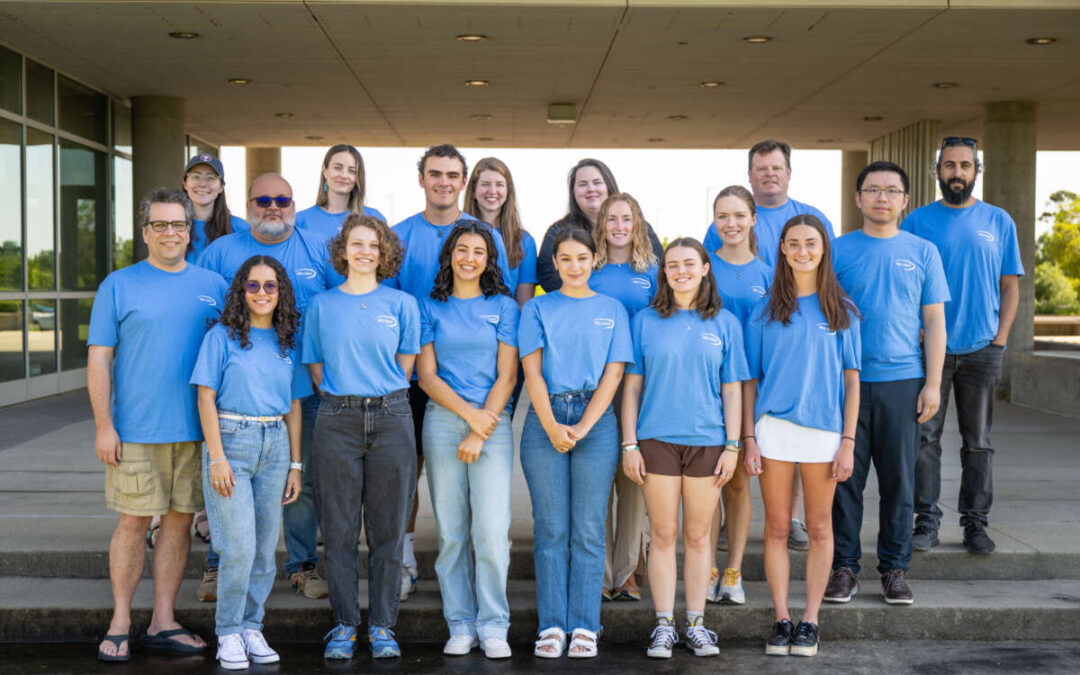

 Based at the Coastal Studies Institute (CSI), the North Carolina Renewable Ocean Energy Program (NCROEP) advances inter-disciplinary marine energy solutions across UNC System partner colleges of engineering at NC State University, UNC Charlotte, and NC A&T University. Click on the links below for more information.
Based at the Coastal Studies Institute (CSI), the North Carolina Renewable Ocean Energy Program (NCROEP) advances inter-disciplinary marine energy solutions across UNC System partner colleges of engineering at NC State University, UNC Charlotte, and NC A&T University. Click on the links below for more information. ECU's Integrated Coastal Programs (ECU ICP) is a leader in coastal and marine research, education, and engagement. ECU ICP includes the Coastal Studies Institute, ECU's Department of Coastal Studies, and ECU Diving and Water Safety.
ECU's Integrated Coastal Programs (ECU ICP) is a leader in coastal and marine research, education, and engagement. ECU ICP includes the Coastal Studies Institute, ECU's Department of Coastal Studies, and ECU Diving and Water Safety. The ECU Outer Banks campus is home to the Coastal Studies Institute.
The ECU Outer Banks campus is home to the Coastal Studies Institute.

